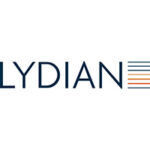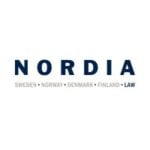-
What are the key financial crime offences applicable to companies and their directors and officers? (E.g. Fraud, money laundering, false accounting, tax evasion, market abuse, corruption, sanctions.) Please explain the governing laws or regulations.
The key financial crime offences applicable to companies and their directors and officers are the following.
- Corruption
The Italian Criminal Code (“ICC”) provides for various corruption offences, the essence of which is the unlawful agreement between the briber and the public official. The relating sanctions, in principle, equally apply to the public official and the private briber.
The main corruption offences relating to domestic public officials are the following:
- “proper bribery”, which occurs when the public official, in exchange for performing an act conflicting with the duties of his office, or in exchange for omitting or delaying an act of his office, receives money or other things of value, or accepts a promise of such things (art. 319 ICC). Punishment is imprisonment from six to 10 years, and it can be increased due to “aggravating circumstances”;
- “bribery for the performance of the function”, which occurs when the public official, in connection with the performance of his functions or powers, unduly receives, for himself or for a third party, money or other things of value or accepts the promise of them (art. 318 ICC). Punishment is imprisonment from one to six years, and it can be increased due to “aggravating circumstances”;
- “bribery in judicial acts”, which occurs when the conduct mentioned under the first two points above is taken for favouring or damaging a party in a civil, criminal or administrative proceeding (art. 319-ter ICC). Punishment is imprisonment from six years to 12 years, and it can be increased due to “aggravating circumstances”;
- “unlawful inducement to give or promise anything of value”, which occurs when the public official, by abusing his quality or powers, induces someone to unlawfully give or promise to him or to a third party money or other things of value (art. 319-quater ICC). Punishment is imprisonment from six years to 10 years and six months for the public official, and up to three years for the private briber, and they can be increased due to “aggravating circumstances”. Where the private party is “forced” by the public official to give or promise a bribe, the offence of “extortion committed by a public official” applies (art. 317 ICC). In that respect, the private party is considered the victim of the crime, and the offence entails the exclusive criminal liability of the public official.
Additional criminal offences concerning relations with public officials are the following:
- “trafficking of unlawful influences”, which occurs when anyone, out of the cases of participation in the offences of “proper bribery” and “bribery in judicial acts”, by intentionally exploiting existing relations with a public official, unduly makes someone giving or promising to him/her or others, money or other economic advantage, in order to reward a public official in relation to the performance of his/her functions, or in order to carry out an unlawful intermediation with the public official (namely to induce the public official to carry out an act conflicting with the office’s duties constituting crime, from which an undue advantage may derive; art. 346-bis ICC). Punishment is imprisonment from one year to four years and six months, and can be increased due to “aggravating circumstances”; and
- “instigation to bribery”, which occurs when the private party makes an undue offer or promise that is not accepted by the public official, or when the public official solicits an undue promise or payment that is not carried out by the private party (art. 322 ICC). Punishments provided for “proper bribery” and for “bribery for the performance of the function” apply, and are reduced by one-third.
With respect to corruption relating to public officials of foreign States and of international organisations (such as the UN, OECD, etc.), the mentioned domestic corruption offences do apply, but with the limitation that only active corruption is punished (namely, only the private briber, on the assumption that the foreign public officials will be punished according to the laws of the relevant jurisdiction; art. 322-bis ICC).
- Tax crimes
The regulation on tax crimes is contained in Legislative Decree no. 74/2010. The most relevant criminal tax offences are the following:
- submitting a fraudulent tax return by using false invoices (for non-existing transactions). Punishment is imprisonment from four to up to eight years (art. 2);
- submitting a fraudulent tax return by using other fraudulent means. Punishment is imprisonment from three to up to eight years (art. 3);
- submitting a false tax return. Punishment is imprisonment from two to up to four-and-a-half years (art. 4);
- failure to file a tax return. Punishment is imprisonment from two to up to five years (art. 5);
- issuing false invoices (for non-existing transactions). Punishment is imprisonment from four to up to eight years (art. 8);
- concealment or destruction of account books. Punishment is imprisonment from three to up to seven years (art. 10); and
- fraudulent subtraction to the payment of tax. Punishment is imprisonment from six months to up to four years (art. 11).
In most of the mentioned offences, the achievement of a specific amount of tax evasion (higher than a certain threshold) is a pre-condition of the offence (i.e.: more than Euro 30,000 for a “fraudulent tax return by using other fraudulent means”; more than Euro 50,000 for a “failure to file the tax return”; and more than Euro 100,000 for a “false tax return”).
The mental element required is always the intent to evade income tax or Vat (or to allow third persons to evade taxes).
- False accounting
The criminal offence of “false accounting” is contained in the Italian Civil Code (articles 2621 and 2622). With respect to listed companies, it provides for imprisonment from three to eight years for directors, chief executives, internal auditors and liquidators who, with the purpose of obtaining an undue profit, intentionally indicate material facts not corresponding to the truth in the balance sheets, reports or other corporate communications directed to the shareholders or to the public, or who intentionally omit relevant material facts whose communication is imposed by the law on the economic, patrimonial or financial situation of the company or of the group to which it pertains, in a way concretely able to induce others in error. The mental element required is intent.
For non-listed companies, punishment is ordinarily imprisonment from one to five years.
- Market manipulation and Fraud
The criminal offence of “market manipulation” is provided for by Legislative Decree no. 58/1998 (the so-called “Finance Unified Text”; art. 185). It provides for the punishments of imprisonment from two to 12 years and a fine from Euro 40,000 to Euro 10 million for any individual who spreads false news or carries out sham transactions or other deceptions that are concretely able to cause an alteration of the price of financial instruments. The amount of the fine can be additionally increased by the judge in the most serious cases. The mental element required is intent.
The general statute of “fraud” can be used in residual cases (art. 640 ICC). It provides for imprisonment of up to three years (and up to five years in case of aggravating circumstances) for anyone who, using devices or deception, obtains an undue profit for himself or others, causing damage to others. The mental element required is intent.
- Insider trading
The criminal offence of “insider trading” is provided for by Legislative Decree no. 58/1998 (the so-called “Finance Unified Text”; art. 184). It provides for the punishments of imprisonment from two to up to 12 years and a fine from Euro 40,000 up to Euro 6 million for any individual who, being in possession of non-public information by virtue of his quality as a member of administrative, managing or supervisory bodies of the issuer corporation, or as shareholder of the issuer corporation, or by performing an employment activity, profession or function, also public, or an office:
- purchases, sells or carries out other transactions, directly or indirectly, on behalf of himself or of a third party, on financial instruments by using the mentioned information;
- communicates the mentioned information to others, out of the normal course of employment, profession, function or office; and
- exhorts or induces others, on the basis of the mentioned information, to carry out some of the transactions indicated under point (a) above.
The mental element required is intent.
- Money laundering
The criminal offence of money laundering is provided for by art. 648-bis ICC, which punishes the conduct of anybody who, with knowledge and intent, substitutes or transfers money, goods or other things of value deriving from an intentional crime or carries out, in relation to that benefit, any transactions in such a way as to obstruct the identification of their criminal provenance. As of 2015, also the so-called “self-money laundering” is punishable. The punishments are imprisonment from four to up to 12 years and a fine from Euro 5,000 to Euro 25,000, always with the confiscation of the relevant money/goods in case of conviction.
As for the mens rea, the law requires knowledge about the unlawful provenance of the money, goods or other things of value, and knowledge and intent to substitute or transfer them, or to carry out transactions that could obstruct the identification of their criminal provenance. Therefore, a negligent standard has to be excluded. However, in practice, prosecutors and courts tend to infer knowledge and intent from objective circumstances, in a way that often extends the reach of the offence.
- Trade sanctions and export control violations
According to art. 18, paragraphs 1 and 2, of Legislative Decree no. 221/2017, anyone who carries out export transactions of dual-use goods without the required authorisation or with an authorisation obtained providing false statements or documentation, is punished with imprisonment from two years to up to six years or with a fine from Euro 25 to Euro 250. Where export transactions of dual-use goods are carried out without complying with the duties imposed by the authorisations, punishments are imprisonment from one year to four years or a fine from Euro 15 to Euro 150. In the event of conviction, confiscation of the goods that are the subject of the relevant transactions is applied (art. 18, para. 3). The mentioned criminal sanctions require intent and apply to individuals; with respect to entities, they apply to the officers who acted on behalf of the entity, and to anyone that, with knowledge and intent, contributed to the relevant violation.
-
Can corporates be held criminally liable? If yes, how is this determined/attributed?
Companies can be considered criminally liable with regard to a list of criminal offences committed by their managers or employees in the interest or for the benefit of the company (Legislative Decree No. 231/2001). The list of predicate offences is constantly updated and broadened. It currently covers a wide range of financial crimes, such as corruption, tax fraud and fraud against the state, false accounting, market manipulation and insider trading, money laundering, health and safety crimes, intellectual property crimes, infringement of trademarks and environmental crimes.
The company’s liability is qualified by the law as an ‘administrative offence’, consisting in not having implemented an adequate compliance programme able to prevent the commission of the criminal offence by the company’s managers or employees; however, the competence for the investigation and prosecution of companies’ offences lies with the ordinary public prosecutors, under the rules of criminal procedures and in the frame of criminal proceedings subject to the jurisdiction of criminal courts, which are usually joined with the criminal proceedings against the managers or employees who committed the predicate offence.
If the predicate criminal offence is committed by an employee, the company can avoid liability by proving that it had implemented at the time an adequate compliance programme (properly designed to effectively prevent the commission of that type of offence). However, if the offence is committed by senior managers, the liability of the company can be avoided only by proving that:
- the company had implemented at the time an adequate and effective compliance programme;
- there was sufficient surveillance by the supervisory board (“ODV”); and
- the senior manager committed the offence by ‘fraudulently circumventing’ the mentioned internal controls.
In practice, the above standard is extremely difficult to meet and almost unreachable.
-
What are the commonly prosecuted offences personally applicable to company directors and officers?
See the criminal offences listed under question 1.
-
Who are the lead prosecuting authorities which investigate and prosecute financial crime and what are their responsibilities?
Public prosecutors are responsible for the investigation and prosecution of all criminal offences, including financial crime, of both individuals and companies. They are assisted by the police.
Public prosecutors are not part of the government but are professional magistrates, such as court judges, and their decision to bring criminal prosecutions is compulsory and not discretionary. This means that when they acquire or receive a ‘notice of crime’ – a notice regarding specific facts potentially constituting a crime – they have a duty to open formal criminal proceedings (by immediately registering the notice in a special register) and start an investigation. Subsequently, if they gather sufficient evidence that an offence was committed by certain individuals or companies, they have a duty to bring a criminal prosecution by requesting the committal for trial of the targets.
-
Which courts hear cases of financial crime? Are they determined by tribunals, judges or juries?
The jurisdiction over all criminal offences, including financial crime, is exercised by professional judges (magistrates), with the exceptions indicated below. The main judicial bodies are the following:
- the Court of First Instance (constituted of a solo judge, or three professional judges, depending on the seriousness of the crime/length of imprisonment provided for by law);
- the Court of Appeal (second instance; ordinarily constituted of three professional judges); and
- the Court of Cassation (third instance; ordinarily constituted of five professional judges).
Cases of financial crime are decided by the mentioned courts (usually collective courts).
With respect to certain serious crimes (such as murder, genocide, etc.) the so-called “popular” (non-professional) judges also participate in the courts. These courts are called, respectively, the Court of Assize of First Instance and the Court of Assize of Appeal (in both cases, constituted of two professional judges and six “popular judges”). These courts with the participation of “popular judges” do not ordinarily hear cases of financial crime.
-
How do the authorities initiate an investigation? (E.g. Are raids common, are there compulsory document production or evidence taking powers?)
As explained in question 4, when public prosecutors acquire or receive a ‘notice of crime’ – a notice regarding specific facts potentially constituting a crime – they have a duty to open formal criminal proceedings (by immediately registering the notice in a special register) and start an investigation. The investigation does not start in the event the notice refers to facts which are clearly unable to constitute a criminal offence (including a company’s offence).
The notice may be generated from multiple sources, such as: criminal complaints filed by injured parties; reports made by the police or other public officials; reports issued by the relevant enforcement agencies (eg, tax authorities or the authority regulating the financial market, Consob); information obtained through other channels (press articles, etc.).
The public prosecutors’ powers of investigation are extensive. In particular, they are empowered to:
- compel a person to attend an interview, both witnesses and suspects; the latter, however, have the right not to answer;
- compel the provision of information and the production of “determined things” and documents (including documentation and correspondence possessed by banks);
- issue search warrants to search premises (where there are reasonable grounds to believe that there are items related to the crime in a certain place) and seize relevant items and documents (items related to the crime which are necessary for the assessment of the facts; art. 253 of the Italian Code of Criminal Procedure; “ICCP”); and
- seize documentation relating to bank accounts (where there are reasonable grounds to believe that they are related to a crime; art. 255 ICCP).
In practice, raids are often used in order to benefit from the surprise element.
Public prosecutors are not empowered to autonomously issue phone tapping and freezing orders, but can make applications to a competent judge, which in practice often authorises them (art. 267 ICCP).
-
What powers do the authorities have to conduct interviews?
See the answer to question 6.
-
What rights do interviewees have regarding the interview process? (E.g. Is there a right to be represented by a lawyer at an interview? Is there an absolute or qualified right to silence? Is there a right to pre-interview disclosure? Are interviews recorded or transcribed?)
“Suspects” required to attend interviews with public prosecutors and judicial police have a right to silence (“privilege against self-incrimination”), from which adverse inferences cannot legally be drawn, and they have a duty (not only the right) to have legal representation (art. 64 ICCP).
On the contrary, “witnesses” have a duty to answer questions truthfully (otherwise, the offence of false deposition is perpetrated) and do not have the right to legal representation.
There is no right to pre-interview disclosure. Witnesses’ interviews are not recorded or transcribed but are documented by minutes; further to a recent law reform, suspects’ interviews have to be recorded and transcribed.
-
Do some or all the laws or regulations governing financial crime have extraterritorial effect so as to catch conduct of nationals or companies operating overseas?
The general governing principle is that of territoriality, according to which Italian courts have jurisdiction on all offences considered committed within the Italian territory: namely, when at least a segment of the prohibited conduct, or the event, takes place in Italy, regardless of the nationality of the offender (art. 6 ICC). This principle suffers a derogation in favour of the “extra-territorial” jurisdiction only to a very limited extent, and under stringent requirements (presence in Italy of the suspect, request of the Italian Minister of Justice, unsuccessful extradition proceedings, etc.; see articles 9 and 10 ICC).
However, it should be noted that with respect to financial crime (corruption, tax fraud, money laundering, etc.) the existence of the Italian jurisdiction is broadly asserted by Italian prosecuting authorities, and broadly affirmed by Italian courts, also vis-à-vis foreign nationals and foreign residents, on the basis of the mentioned principles, and of the relating principle concerning the participation as accomplices in a criminal conduct taken in Italy by other offenders (art. 110 ICC).
-
Do the authorities commonly cooperate with foreign authorities? If so, under what arrangements?
Yes, Italian public prosecutors commonly cooperate with foreign authorities, and there is no high profile investigation and prosecution of financial crime that does not include extensive cooperation and exchange of information and evidence with foreign authorities.
Where there is an international treaty in force with the relevant foreign country, this governs the mutual assistance to be provided, including the Treaty on the European Union and the related EU law. In the absence of a treaty, cooperation is governed by the specific provisions of the ICCP (art. 696 ICCP).
A request to a foreign authority for gathering evidence abroad (i.e. interrogation of suspects and witnesses, search and seizure, etc.) can be made by Italian public prosecutors ordinarily through the Italian Minister of Justice, but the treaties usually reduce the formalities and expedite the procedure.
In turn, where a request for assistance is made by foreign authorities to the Italian ones, both the Italian Minister of Justice and the competent Italian public prosecutor usually have to approve it; and the execution of the request pertains to the public prosecutor or judge (the so-called “Judge for the Preliminary Investigations”) depending on what Italian law provides in relation to the nature of the act to be carried out.
-
What are the rules regarding legal professional privilege? What, if any, material is protected from production or seizure by financial crime authorities?
Public prosecutors do not have the power to seize, or request the production of, documents that are subject to legal professional privilege (i.e. under certain strict conditions, correspondence between the suspect and his defence lawyer, and documents regarding the suspect’s criminal defence) unless such documents represent the so-called “corpus delicti” (“elements of the crime”; art. 103 ICCP). In practice, however, protection granted by legal professional privilege is very limited, and it is more effective at trial – to prevent the use as evidence of documents covered by privilege – than at the stage of the investigation.
Documentation or communications from in-house counsel are not covered by legal professional privilege. Furthermore, in the event of a criminal investigation, Italy’s labour law does not protect personal documents of employees from being searched and seized.
Theoretically, lawyers, expert witnesses, etc., cannot be compelled to testify in relation to matters known only because of their profession, and to deliver documents possessed because of their profession. However, courts (and to some extent, prosecutors), if they consider that such an objection is ill-founded, can order them to depose and can seize those items (articles 200 and 256 ICCP).
-
What rights do companies and individuals have in relation to privacy or data protection in the context of a financial crime investigation?
Italy has implemented the EU General Data Protection Regulation (“GDPR”) 679/2016, which has entered into force on May 25, 2018. However, as explained in question 6, the public prosecutors’ powers of evidence taking are extensive and are not limited by privacy or data protection regulations.
-
Is there a doctrine of successor criminal liability? For instance in mergers and acquisitions?
Yes, the law expressly provides that successor liability applies in the event of merger, spin off, etc. (art. 42 of Legislative Decree no. 231/2001).
-
What factors must prosecuting authorities consider when deciding whether to charge?
As explained in question 4, public prosecutors have a duty to request the “committal for trial” of an individual or company if the “notice of crime” against them is grounded, and there is sufficient evidence for a successful prosecution. In practice, such legal threshold means that in the public prosecutor’s view, on the basis of the evidence gathered during the investigations, there is a reasonable expectation of conviction at trial. As far as companies are concerned, the same standard applies; and in this respect it has to include the commission of a predicate offence by the company’s managers or employees in the interest or for the benefit of the company, and as well the failure by the company to implement an adequate compliance programme/internal control system (see the specific requirements for the company’s liability explained in question 2).
It should be noted that, further to a prosecutor’s request of committal for trial (“indictment”), the decision to issue a decree of committal for trial is taken by a judge (the so-called “Judge for the Preliminary Hearing”) at the end of the so-called “preliminary hearing”. A decree of committal for trial is issued when, in the judge’s view, on the basis of the evidence gathered by the prosecutor during the investigations, there is a reasonable expectation of conviction at trial. When negative, the judge issues a decision of dismissal.
-
What is the evidential standard required to secure conviction?
The public prosecutor must prove guilt “beyond any reasonable doubt” (art. 533, para. 1, ICCP). In the Italian system and particularly in cases of financial crime the standard “beyond any reasonable doubt” is ordinarily applied by professional judges, and not by a jury as in the Anglo-Saxon system: thus, the effectiveness of the principle is generally lower.
-
Is there a statute of limitations for criminal matters? If so, are there any exceptions?
Yes, the statute of limitations begins running at the moment a crime is committed. In relation to each crime (with a few exceptions for the most serious offences punished with life sentence, to which the statute of limitations does not apply), Italian law provides for a first limitations period equal to six years or longer (if the maximum imprisonment period for the crime is longer; art. 157 ICC). In the event that no qualified activity of investigation is carried out within that period (such as a request of interrogation of the suspect, a request of committal for trial, an order of pre-trial custody, etc.), the crime is considered extinguished.
On the contrary, in the event that a qualified activity of investigation is carried out, then the original limitations period is extended for one-quarter of the original time. If no final conviction is reached within that longer period, the crime is considered extinguished.
For crimes committed as of January 1, 2020, a new regime was introduced to be jointly applied with the one explained above. In essence, the time-bar stops running when a decision of first instance is issued. However, the appellate proceeding cannot last longer than two years before the Court of Appeal, and one year before the Court of Cassation (with possible extensions for the most serious crimes, and for proceedings particularly complex); if such appellate proceedings last longer than that, the time-bar restarts running.
-
Are there any mechanisms commonly used to resolve financial crime issues falling short of a prosecution? (E.g. Deferred prosecution agreements, non-prosecution agreements, civil recovery orders, etc.) If yes, what factors are relevant and what approvals are required by the court?
Deferred prosecution or non-prosecution agreements are not provided for by the Italian system. With respect to individuals, under certain conditions, plea bargaining with prosecuting authorities is recognised by Italian law. It has to be approved by the competent judge, the punishment agreed upon cannot be more than five years’ imprisonment, and with a few exceptions is substantially considered as a conviction sentence (articles 444–445 ICCP). With respect to companies, in relation to criminal offences for which the corporate managers or employees would be entitled to plea bargaining, a similar mechanism of plea bargaining is available (art. 63 Legislative Decree no. 231/2001).
Under certain conditions, a civil settlement with the person injured, aimed at compensating damage, can qualify as a “mitigating circumstance” to reduce the criminal sentence.
-
Is there a mechanism for plea bargaining?
Yes, as explained in question 17, under certain conditions plea bargaining with prosecuting authorities is recognised by Italian law. It has to be approved by the competent judge, it entitles the offender to up to a one-third reduction of the punishment, the punishment agreed upon cannot be more than five years’ imprisonment, and with a few exceptions is substantially considered as a conviction sentence (articles 444–445 ICCP). With respect to companies, in relation to criminal offences for which the corporate managers or employees would be entitled to plea bargaining, a similar mechanism of plea bargaining is available (art. 63 Legislative Decree no. 231/2001).
Even if the plea bargaining is considered equivalent to a conviction by an express law provision, an admission of wrongdoing is not required. In particular, according to case law, a plea bargaining cannot be considered an admission of wrongdoing, but rather an incomplete assessment of liability deriving from the defendant decision to renounce to challenge the charges.
As of 2023, on the basis of a new provision, plea bargaining’s judgments cannot be used as evidence in the related civil, tax and ethical proceedings. Under certain conditions, a plea bargaining may remove the ability of the company to take part in public tenders (see Code of Public Contracts).
-
Is there any obligation to disclose discovered misconduct to prosecuting authorities, or any benefit to making a voluntary disclosure? Is there an established route or official guidance for making such disclosures?
There is no obligation for individuals or companies to disclose crimes or misconduct to prosecuting authorities.
In relation to financial crime, Italian law expressly provides benefits for disclosure only with respect to individuals in connection with corruption crimes (the benefit consists of exemption from criminal liability and is subject to stringent requirements, including a self-reporting to be made within four months of the offence).
With respect to companies, there is no formal mechanism to cooperate with the investigation or to disclose violations in exchange for immunity or lesser penalties (with the exception of the plea bargaining explained in question 18). However, a certain degree of cooperation with the prosecuting authorities before trial (in terms of removal of the officers allegedly responsible for the unlawful conduct, implementation of compliance programmes aimed at preventing the same types of offences, compensation of damage, etc.) can have a significant impact on reducing the pre-trial and final sanctions applied to the company (see articles 12 and 17 of Legislative Decree no. 231/2001, which provide for the non-applicability of disqualifications, and the reduction of fines from one-half to two-thirds in the event of complete compensation of damage, implementation of a compliance programme effectively able to prevent the same type of offence, and restitution for confiscation of the proceeds of crime).
In particular, in the event of “criminal responsibility” (see question 2), companies are subject to sanctions constituted of (i) fines, (ii) disqualifications, and (iii) confiscation.
Disqualifications can be particularly afflictive as they can also be applied at a pre-trial stage, as interim coercive measures, and they can consist of the suspension or revocation of government concessions, debarment, exclusion from government financing, and even prohibition from carrying on business activity (articles 9–13 of Legislative Decree no. 231/2001).
Cooperation with the prosecuting authorities before trial, in the forms mentioned above, can prevent or reduce the pre-trial disqualifications, and those applicable to the final sentence (art. 17 of Legislative Decree no. 231/2001).
-
What rules or guidelines determine sentencing? Are there any leniency or discount policies? If so, how are these applied?
With respect to individuals, the court determines the concrete punishment, mostly the extension of imprisonment, within the minimum and maximum limits that the law provides in relation to each crime (art. 132 ICC). The most relevant criteria that the court has to take into account are the following:
- all modalities of the action;
- seriousness of damage or danger caused to the person injured by the crime;
- intensity of intent or degree of negligence; and
- criminal capacity of the offender (art. 133 ICC).
The concrete punishment has to be increased or decreased (usually by one-third) where aggravating or mitigating circumstances have to be applied.
With respect to companies, the applicable sanctions are provided for by the law, and as explained in question 19 they consist of (i) fines, (ii) disqualifications, and (iii) confiscation of the proceeds of crime.
The law also provides the criteria for the courts to modulate such sanctions, and the main criteria are the following: type and seriousness of the offence; degree of liability of the company; activity carried out by the company to eliminate or reduce the consequences of the offences and prevent the commission of further offences; economic and patrimonial conditions of the company (articles 10-11 of Legislative Decree no. 231/2001).
-
How are compliance procedures evaluated by the prosecuting authorities and how can businesses best protect themselves?
As explained in questions 2, 19 and 20, compliance programmes have a crucial role for excluding or mitigating corporate criminal liability. In that context, a fundamental function is performed by the company’s supervisory board (the so-called “ODV”), which is responsible for monitoring and continuously supervising the effectiveness and adequacy of the compliance programme or internal control system. In order to obtain exclusion from liability or leniency, the supervisory board must be composed of qualified professionals and have, and effectively exercise, powers of action that are independent and autonomous from those of the management (and of other corporate bodies).
As explained in question 19, fines applicable to companies can be reduced by up to two-thirds, and disqualifications can be excluded if the following conditions are fulfilled:
- the company has entirely compensated damage and eliminated the damaging consequences of the crime;
- the company has eliminated the organisational deficiencies that gave rise to the crime, by adopting and implementing an adequate compliance programme that is able to prevent the commission of offences of the same type as those under investigation; and
- the company has made the profits obtained from the crime available to the authorities for confiscation.
To benefit from leniency, it is generally advisable that the company adopts appropriate and effective reaction measures as soon as it becomes aware of the investigation and ensures that a remediation plan is fully executed before the deadline provided for by the law (i.e., the declaration of opening of the trial of first instance).
-
What penalties do the courts typically impose on individuals and corporates in relation to the key offences listed at Q1?
With respect to individuals, in relation to the key offences listed in question 1, the average punishments can be roughly summarized as follows:
- about 2 to 4 years’ imprisonment for tax crimes, false accounting and fraud;
- about 4 to 6 years’ imprisonment for corruption, money laundering, market manipulation and insider trading.
As far as companies are concerned, fines always apply in the event of a company’s conviction, and the relating amount does not usually exceed Euro 3 million or lower.
Confiscation of the proceeds of crime may extend and vary significantly depending on the concrete circumstances of the case.
As explained in question 19, disqualifications can be particularly afflictive as they can also be applied at a pre-trial stage, as interim coercive measures, and they can consist of the suspension or revocation of government concessions, debarment (prohibition of entering into contacts with the public administration), exclusion from government financing, and even prohibition from carrying on business activity (articles 9–13 of Legislative Decree no. 231/2001).
The length of disqualifications is by law ordinarily comprised between 3 months and 2 years, with the exception of the most serious corruption offences for which the disqualifications’ length is comprised between 4 years and 7 years (articles 13 and 25 of Legislative Decree no. 231/2001).
In practice, the adoption by the company of reaction measures and remediation plans as explained in question 21 often entitles them to benefit from the exclusion from disqualifications.
-
What rights of appeal are there?
Both the public prosecutor and the defendant have a right to appeal the decision of first instance before the Court of Appeal. In turn, the decision of the Court of Appeal can be appealed by both the public prosecutor and the defendant before the Court of Cassation (see question 5).
In particular, the public prosecutor has a right to appeal non-guilty verdicts (and in principle as well guilty verdicts, in order to obtain a more favourable ruling).
The defendant has a right to appeal guilty verdicts (and in principle as well non-guilty verdicts, in order to obtain a more favourable ruling).
In the trial before the Court of Appeal, the taking of new evidence is ordinarily extremely limited, and it takes place only in the event the court considers it necessary to decide the case.
Appeals before the Court of Cassation can in principle be made only for violations of law, and not with respect to factual points. If the appeal is considered admissible by the Court of Cassation, the case is usually heard in only one hearing, and decided by the court at the end of that hearing.
-
How active are the authorities in tackling financial crime?
Italian public prosecutors, especially with the support of financial police, are extremely active in tackling financial crime (see in question 1 the list and structure of key financial crime offences).
-
In the last 5 years, have you seen any trends or focus on particular types of offences, sectors and/or industries?
In the last decade, including the last 5 years, the investigation and prosecution of financial crime by Italian public prosecutors has constantly continued, with particular emphasis on corruption offences committed by company’s managers or employees and connected corporate criminal liability, and as well with respect to tax crimes.
As far as tax crimes are concerned, tax authorities first and then public prosecutors have especially targeted the Italian businesses of foreign multinationals, in cases that were often settled prior to reaching the trial stage.
With respect to corruption cases, in the last decade (including in the last 5 years) the Milan public prosecution’s office has conducted high profile investigations and prosecutions for the charges of corruption of foreign public officials, including vis-à-vis the Italian oil company Eni and its top managers, and the Anglo-Dutch oil company Shell and its top managers.
In the well-known case OPL 245, alleging corruption by Eni and Shell and their top managers of the former President, Minister of Petroleum and Attorney General of Nigeria, in exchange for the grant in 2011 of an oil prospecting licence in Nigeria, the Italian courts, with respect to investigations which started in 2013, and after about a decade of intense legal fight, have finally acquitted all defendants in 2022 further to an in-depth assessment of the factual and legal elements of the case, with the conclusion that no corruption had concretely taken place.
A similar outcome of full acquittal on the merits for all defendants was finally reached by the Italian courts in 2020-2021, in relation to investigations started in 2013 against the companies Eni and Saipem and their top managers, for allegations of corruption of the Algerian Minister of Energy in connection with the award of several tenders in Algeria in the period 2007-2010.
With respect to the enforcement of corporate criminal liability, there is no doubt that the relevance of compliance programmes – as a crucial factor for excluding or mitigating corporate liability – has significantly increased in the recent years; as well as the importance of internal investigations and of strategical advice about if and when to self-report misconduct to the authorities, and about which reaction measures and remediation plans to be timely implemented by the relevant companies.
-
Have there been any landmark or notable cases, investigations or developments in the past year?
With respect to the OPL 245 case mentioned in question 25, in 2024 Italian courts have finally rejected the civil action for damages brought by Nigeria against the companies Eni and Shell in connection with the indicated corruption allegations.
With respect to charges of false accounting involving an Italian subsidiary of a UK telecommunication group and its managers, in January 2024 the Milan Court of First Instance issued a judgment of acquittal towards the Italian entity and some of its top managers (including the managers of the UK parent company), and a judgment of conviction against most of the Italian managers to sentences ranging from one year and four months to three years’ imprisonment.
With regard to tax violations, in 2025 high profile tax audits were carried out by Italian tax authorities against the Italian businesses of foreign multinationals, with the starting of criminal investigations by the prosecuting authorities for the related alleged criminal tax offences.
Furthermore, in July 2025 the Milan Prosecutor’s Office disclosed the existence of an investigation against the Milan mayor, various officers of the Milan municipality, several construction companies and architectural firms and their managers and representatives, for the alleged offences of unlawful inducement to give or promise anything of value and falsity, in relation to alleged irregularities in the building permits (also for well-known skyscrapers) issued by the Milan municipality.
-
Are there any pending or proposed changes to the legal, regulatory and/or enforcement framework?
No.
-
Are there any gaps or areas for improvement in the financial crime legal framework?
The main area for improvement concerns the reduction of the standard of proof for a company to avoid criminal liability, in the event the predicate offence was committed by a senior manager.
In the current scenario, where the predicate offence was committed by a senior manager, the company can avoid criminal liability only by proving that:
- it had implemented at the time an adequate and effective compliance programme (properly designed to prevent the commission of that type of offence);
- there was sufficient surveillance by the supervisory board (“ODV”); and
- the senior manager committed the offence by ‘fraudulently circumventing’ the mentioned internal controls.
The above standard is extremely difficult to meet and almost unreachable in practice; with the consequence that where a senior manager is involved in the predicate offence, the criminal liability of the company is de facto almost automatic.
The improvement should ideally allow companies to obtain exemption from criminal liability under lower and more realistic conditions.
Italy: White Collar Crime
This country-specific Q&A provides an overview of White Collar Crime laws and regulations applicable in Italy.
-
What are the key financial crime offences applicable to companies and their directors and officers? (E.g. Fraud, money laundering, false accounting, tax evasion, market abuse, corruption, sanctions.) Please explain the governing laws or regulations.
-
Can corporates be held criminally liable? If yes, how is this determined/attributed?
-
What are the commonly prosecuted offences personally applicable to company directors and officers?
-
Who are the lead prosecuting authorities which investigate and prosecute financial crime and what are their responsibilities?
-
Which courts hear cases of financial crime? Are they determined by tribunals, judges or juries?
-
How do the authorities initiate an investigation? (E.g. Are raids common, are there compulsory document production or evidence taking powers?)
-
What powers do the authorities have to conduct interviews?
-
What rights do interviewees have regarding the interview process? (E.g. Is there a right to be represented by a lawyer at an interview? Is there an absolute or qualified right to silence? Is there a right to pre-interview disclosure? Are interviews recorded or transcribed?)
-
Do some or all the laws or regulations governing financial crime have extraterritorial effect so as to catch conduct of nationals or companies operating overseas?
-
Do the authorities commonly cooperate with foreign authorities? If so, under what arrangements?
-
What are the rules regarding legal professional privilege? What, if any, material is protected from production or seizure by financial crime authorities?
-
What rights do companies and individuals have in relation to privacy or data protection in the context of a financial crime investigation?
-
Is there a doctrine of successor criminal liability? For instance in mergers and acquisitions?
-
What factors must prosecuting authorities consider when deciding whether to charge?
-
What is the evidential standard required to secure conviction?
-
Is there a statute of limitations for criminal matters? If so, are there any exceptions?
-
Are there any mechanisms commonly used to resolve financial crime issues falling short of a prosecution? (E.g. Deferred prosecution agreements, non-prosecution agreements, civil recovery orders, etc.) If yes, what factors are relevant and what approvals are required by the court?
-
Is there a mechanism for plea bargaining?
-
Is there any obligation to disclose discovered misconduct to prosecuting authorities, or any benefit to making a voluntary disclosure? Is there an established route or official guidance for making such disclosures?
-
What rules or guidelines determine sentencing? Are there any leniency or discount policies? If so, how are these applied?
-
How are compliance procedures evaluated by the prosecuting authorities and how can businesses best protect themselves?
-
What penalties do the courts typically impose on individuals and corporates in relation to the key offences listed at Q1?
-
What rights of appeal are there?
-
How active are the authorities in tackling financial crime?
-
In the last 5 years, have you seen any trends or focus on particular types of offences, sectors and/or industries?
-
Have there been any landmark or notable cases, investigations or developments in the past year?
-
Are there any pending or proposed changes to the legal, regulatory and/or enforcement framework?
-
Are there any gaps or areas for improvement in the financial crime legal framework?


















